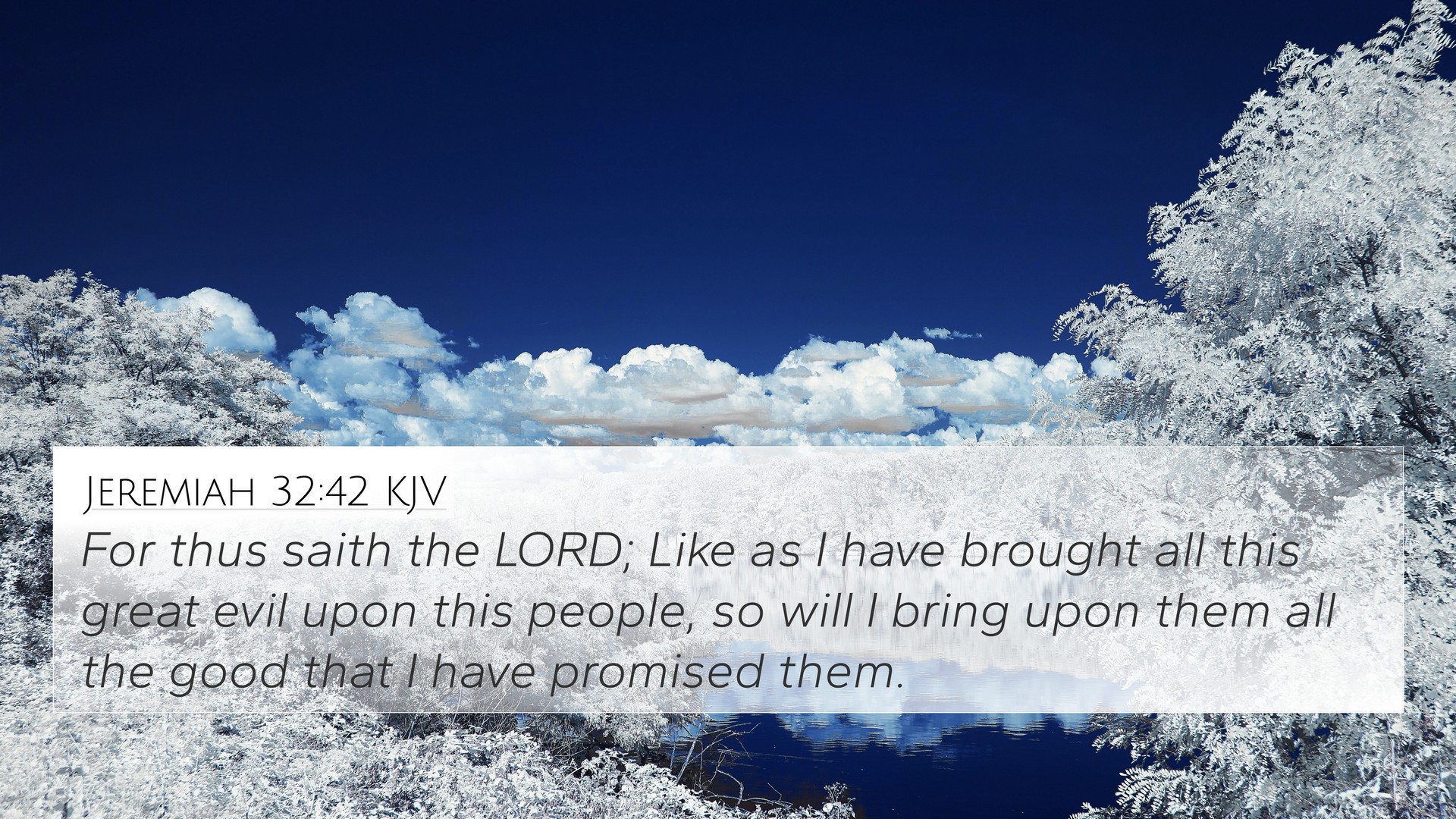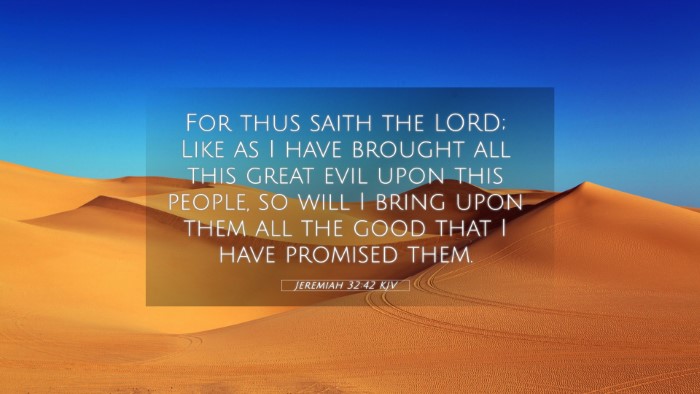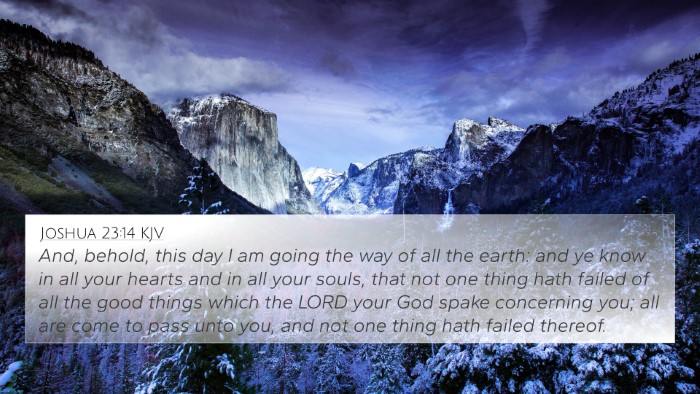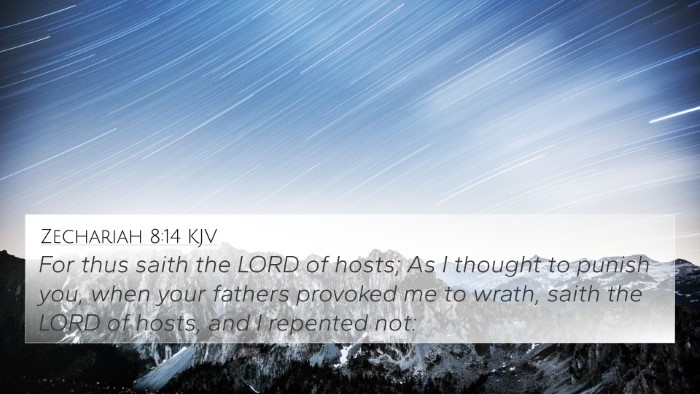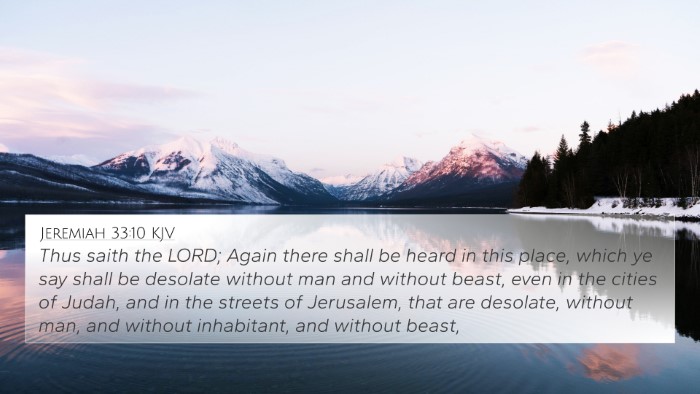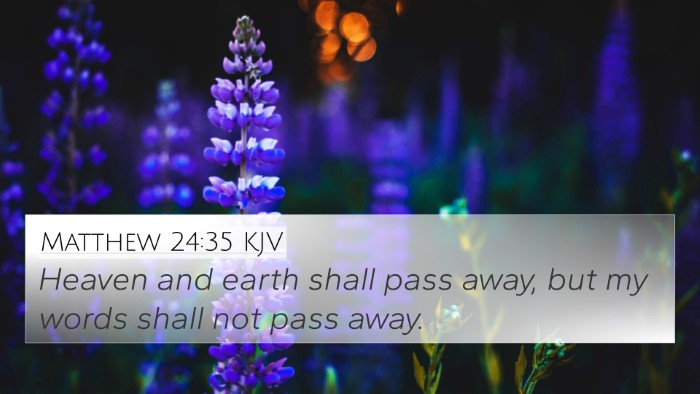Meaning and Interpretation
This verse serves as a profound reminder of God's sovereignty and His ability to both judge and restore His people. It reflects a central theme in the book of Jeremiah, highlighting God's dual role as both a divine judge and a redeemer.
Contextual Background
In the broader context of Jeremiah 32, the prophet is in prison, prophesying the impending destruction of Jerusalem. The Israelites are enduring a significant crisis, yet this verse introduces a powerful promise of restoration. Noteworthy is that calamity had been brought upon them due to their rebellion, illustrating the unwavering justice of God.
Commentary Insights
-
Matthew Henry:
Henry emphasizes the certainty of God's promises and His unyielding fidelity. The calamities faced by Israel were not without purpose, but they would ultimately lead to a greater good: the fulfillment of God's promises regarding their restoration and blessing.
-
Albert Barnes:
Barnes points out that this verse demonstrates the balance in God's nature; just as He brings calamity as a consequence of sin, He also provides blessing and hope in the aftermath. The 'good' refers to the restoration of Israel after their exile, showcasing God's mercy.
-
Adam Clarke:
Clarke elaborates on the theme of hope amidst despair. He asserts that God’s justice and mercy are complementary; the hardships faced by Israel serve as a prelude to the ultimate joy and well-being He will restore to His people.
Thematic Connections
This verse calls for a deeper exploration of several interrelated themes in the Bible, especially concerning God's promises and the cycles of judgment and restoration.
Cross References
- Isaiah 54:7-8: God's commitment to restore His people after a time of wrath.
- Lamentations 3:31-33: The Lord will not cast off forever; restoration follows suffering.
- Romans 8:28: God works all things together for good for those who love Him.
- Jeremiah 29:11: God's plans for a future filled with hope despite current exile.
- Psalm 126:5-6: Those who sow in tears will reap with joy, depicting the cycle of sorrow leading to joy.
- 2 Corinthians 1:3-4: God comforts us in all our afflictions so that we may comfort others.
- Zephaniah 3:17: God's promise to restore and rejoice over His people with gladness.
Cross-Referencing Bible Texts
Engaging in a deep Bible cross-reference study around this verse can yield insights into God’s holistic nature and His unwavering commitment to His covenant people. Through thematic connections, we can grasp the multifaceted relationship between judgment and mercy throughout Scripture.
Tools for Cross-Referencing
Utilizing a Bible concordance or a Bible cross-reference guide will immensely benefit your study. These resources help in identifying various connections between scripture verses, facilitating a richer understanding of Biblical themes.
Examples of Use
- In sermon preparation, cross-references can support the central message and provide a broader theological context.
- For personal study, consider the links between prophetic promises in the Old Testament and their fulfillment in the New Testament.
- When exploring themes of restoration, examine how various Biblical authors convey similar messages, establishing a cohesive narrative of hope.
Summary
Jeremiah 32:42 not only speaks to the judgment of God but also emphasizes His faithful commitment to restoring His people. Through reflective study, one can see the overarching narrative of redemption that ties various scripture passages together. The importance of understanding these connections cannot be understated, as they deepen our comprehension of God's character and His interactions with humanity.
